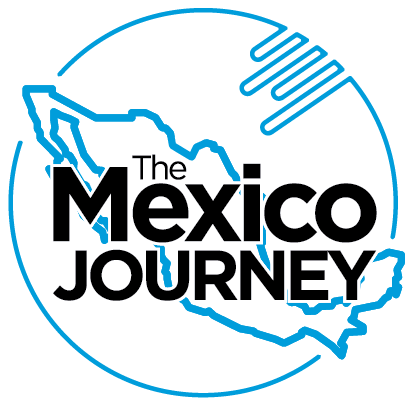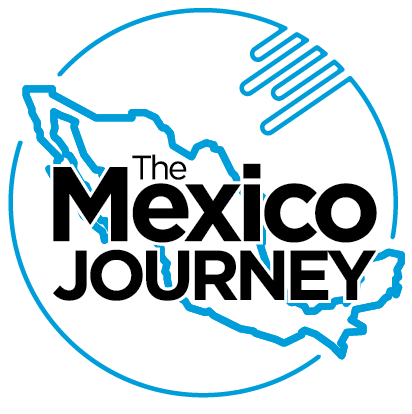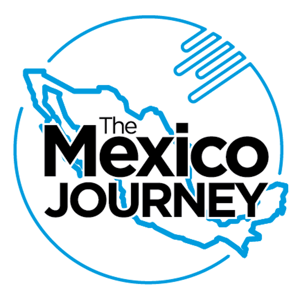
NEARSHORING TRADE COMPLIANCE
Driving seamless operations across North America.
WANT A USMCA COMPLIANCE REVIEW FOR NEARSHORING?
The Nearshoring Experts in Mexico
OUR INSIGNIA SOLUTION


Nearshoring FAQs
Learn more about the booming global market.
Simply put, it is the process of operating a business in a location near to their final market. Nearshoring is a strategy that seeks to balance cost savings with better communication, control, and logistics compared to traditional offshoring. In the context of the global manufacturing industry, Mexico has been highlighted as a booming nearshore country.
Proximity: Companies choose nearshore partners geographically close to them, aiming for benefits like similar time zones, improved logistics and easier travel for collaboration.
Cost savings: Nearshoring can offer lower labor costs compared to the home country, but not necessarily as drastic reductions as seen in some offshore locations.
Trade Agreements: The USMCA has reduced tariffs and trade barriers, which can benefit trade between the US and Mexico.
Supply Chain: localizing and streamlining the supply chain is a risk mitigation practice, highlighted by recent global disruptions.
Business Operations & Compliance: Navigating the legal and regulatory frameworks of another country can be challenging, including labor laws, data privacy, and the sociopolitical environment in general.
Supply Chain Development: In some cases, the supplier network of raw materials or components may not yet be developed. Creative strategies need to be deployed when seeking regional content benefits.
Existing Supplier Relations: Many businesses have long-term commitments and contracts with their suppliers. It may take a high level of communication and coordination to align larger goals.
Skilled Workforce: For labor-intensive operations, the identification of the required skill labor can be as critical as other cost factors in the business plan.
Our Services
From the nearshoring experts.
Nearshoring Trade Compliance Advisory
Understand applicable duties, available reduction programs; classification and pre-ruling application.Nearshoring Trade Compliance
USMCA
The United States-Mexico-Canada Agreement (USMCA) entered into force on July 1, 2020. The USMCA, which substituted the North America Free Trade Agreement (NAFTA), is a mutually beneficial win for North American workers, farmers, ranchers, and businesses. The agreement created more balanced, reciprocal trade supporting high-paying jobs for Americans and growth in the North American economy.
Some USMCA Trade Facts:
U.S. goods and services trade with USMCA countries totaled an estimated $1.8 trillion in 2022. Exports were $789.7 billion and imports were $974.3 billion dollars.
U.S. goods exported to USMCA increased 16% in 2022, marking a total increase of 34% since 2012.
U.S. goods exported to Mexico totaled $313.8 billion in 2022. This supported about 2 million U.S. jobs alone.
Agreement highlights include:
- Creating a more level playing field for American workers, including improved rules of origin for automobiles, trucks, other products, and disciplines on currency manipulation.
- Benefiting American farmers, ranchers, and agribusinesses by modernizing and strengthening food and agriculture trade in North America.
- Supporting a 21st Century economy through new protections for U.S. intellectual property, and ensuring opportunities for trade in U.S. services.
- New chapters covering Digital Trade, Anticorruption, and Good Regulatory Practices, as well as a chapter devoted to ensuring that Small and Medium Sized Enterprises benefit from the Agreement.
IMMEX PROGRAM
The Mexican IMMEX Program (Manufacturing, Maquila and Export Service Industry) is an instrument which allows companies to operate under a preferential tax and fiscal program. Foreign companies can transform and export goods or services temporarily brought to Mexico under this incentive program.
The IMMEX Program aims to enable foreign companies to produce goods or provide services from Mexico, in a way that is cost-effective while still focusing on quality. You may have heard of “maquiladoras”, and these are factories that import raw material into Mexico, use it in a production or transformation process (think machining, assembly, repair, etc) and then export it to their home country.
With VAT Certification, these organizations can avoid paying value-added tax on these temporary imports that are destined for subsequent export. They can also temporarily import the raw materials and equipment used in the transformation process without the payment of VAT tax.
There are some requirements, of course. Companies in the IMMEX Program in Mexico have to:
- export at least US$500,000 annually, or at least 10% of their total sales
- adopt certain inventory control systems
- comply with time frames for the import and export of their goods or services,
- operate in registered locations in Mexico, among others
VAT CERTIFICATION
- USMCA
- IMMEX Program
- VAT Certification
- AEO Program
- Certification of Origin
UNITED STATES-MEXICO-CANADA AGREEMENT
The United States-Mexico-Canada Agreement (USMCA) entered into force on July 1, 2020. The USMCA, which substituted the North America Free Trade Agreement (NAFTA) is a mutually beneficial win for North American workers, farmers, ranchers, and businesses. The Agreement creates more balanced, reciprocal trade supporting high-paying jobs for Americans and grow the North American economy.
Agreement highlights include:
- Creating a more level playing field for American workers, including improved rules of origin for automobiles, trucks, other products, and disciplines on currency manipulation.
- Benefiting American farmers, ranchers, and agribusinesses by modernizing and strengthening food and agriculture trade in North America.
- Supporting a 21st Century economy through new protections for U.S. intellectual property, and ensuring opportunities for trade in U.S. services.
- New chapters covering Digital Trade, Anticorruption, and Good Regulatory Practices, as well as a chapter devoted to ensuring that Small and Medium Sized Enterprises benefit from the Agreement.
Some USMCA trade facts:
- U.S. goods and services trade with USMCA totaled an estimated $1.8 trillion in 2022. Exports were $789.7 billion; imports were $974.3 billion.
- U.S. goods exported to USMCA increased 16% in 2022, marking a total increase of 34% since 2012.
- U.S. goods exported to Mexico totaled an estimated $313.8 billion in 2022. This supported about 2 million jobs alone.
Sources: USTR & Brookings USMCA Tracker
Read about what's at stake in 2026.
THE IMMEX PROGRAM
The Mexican IMMEX Program (Manufacturing, Maquila and Export Service Industry) is an instrument which allows companies to operate under a preferential tax and fiscal program. Foreign companies can transform and export goods or services temporarily brought to Mexico under this incentive program.
The IMMEX Program aims to enable foreign companies to produce goods or provide services from Mexico, in a way that is cost-effective while still focusing on quality. You may have heard of “maquiladoras”, and these are factories that import raw material into Mexico, use it in a production or transformation process (think machining, assembly, repair, etc) and then export it to their home country. The IMMEX Program is not only for physical goods. It also encompasses services in the knowledge transformation process. Think customer service, purchasing, design engineering or other corporate functions that can take place in Mexico.
With VAT Certification, these organizations can avoid paying value-added tax on these temporary imports that are destined for subsequent export. They can also temporarily import the raw materials and equipment used in the transformation process without the payment of VAT tax.
There are some requirements, of course. Companies in the IMMEX Program in Mexico have to export at least US$500,000 annually, or at least 10% of their total sales. They also must adopt certain inventory control systems, comply with time frames for the import and export of their goods or services, and operate in registered locations in Mexico, among others.
Read the entire blog post "The IMMEX Program in Mexico: A Quick Guide".
VAT Certification
VAT, or value-added tax, is similar to a sales tax in Mexico, payable at a 16% rate. It is applied on the sales of goods and services as well as lease payments and imports of goods and services. Temporary imports under the IMMEX Program and similar programs are subject to the general 16% VAT rate. Such imports may qualify for VAT relief when obtaining special certification from the tax authorities related to the adequate control of such imports. The relief is applied in the form of an immediate VAT credit when clearing customs, which means that the temporary import is done on a cashless basis for VAT.
The primary exemptions of VAT is on the sale of land transactions, credit instruments, residential construction, interest paid by banks, medical services, education, salary and wages, rentals of residential property, and the sale of non-amortisable certificates on real estate investment trusts (REITs). The VAT law also taxes sales in Mexico of temporarily imported goods by non-residents to (a) other non-residents, (b) maquiladoras, or (c) companies in the automotive industry.
VAT paid by companies on their purchases and expenses related to VAT-added activities may usually be credited against their liability for VAT they collect from customers on their own sales, services rendered, etc. VAT is calculated for each calendar month as a final tax. Additionally, VAT overpayments may be used to offset the tax liabilities arising from other federal taxes.
AUTHORIZED ECONOMIC OPERATOR
Launched in 2012, the AEO Program have been pivotal in fostering secure and efficient trade operations. The Authorized Economic Operator (AEO) Programs create custom partnerships aimed at securing the supply chain and facilitating legitimate low-risk trade. AEO's are examined at the border significantly less than regular border traders.
Participating in Mexico's AEO program yields substantial benefits, simplifying administrative processes, reducing customs inspections, providing priority in inspection lines, and granting access to exclusive lanes. Operators also benefit from extended timeframes for temporary import goods and increased flexibility for amendments and corrections after customs clearance. The certification process entails a comprehensive evaluation of applicants' tax and customs compliance. Once approved, it is valid for up to two years.
In July 2020 some VAT/IEPS Certification benefits were transferred to the AEO certification, such as the possibility to perform Virtual Exports with non-IMMEX Mexican companies. Other benefits for AEO companies are:
- Minimum percentage of customs inspections and priority in case of inspection
- Access to preferential lanes in border crossing, such as FAST lanes
- Dedicated AEO specialist at the SAT
- A recognized trademark worldwide, AEO exists in many countries
- Use of the AEO logo
If a company has already been certified by the USA Customs and Border Protection (CBP) Program, CTPAT, Mexican Customs recognizes the certification by simplifying the certification process. They will experience an expedited AEO process after a joint inspection between CBP and the SAT (Mexican tax authority).
CERTIFICATION OF ORIGIN
The National Customs Agency (ANAM) under Mexico’s Secretariat of Finance and Public Credit (SHCP) is responsible for inspecting goods entering and leaving Mexico. The ANAM has 50 offices throughout the country and collects duties and taxes on imported goods, depending on the type, value and country of origin. In addition to duties and taxes, other regulations may include import permits, quotas or special licenses.
Import duty rates depend on the HTS Classification Code of goods to be imported. For correct calculation, the import agent must present the import declaration, a commercial invoice, a bill of lading, proof of exemption, and a certificate establishing the origins of the goods. In some cases it is also required to provide documents that demonstrate the compliance with Mexican product safety and performance regulations. Additionally, higher customs duties are applied to sugars and confectionary, beverages and tobacco, dairy products and clothing.
Companies may also apply for benefits under a wide range of free trade agreements with 50 countries to get a duty reduction either on importations of raw materials or when exporting finished goods to destination markets. Rules of origin and certification procedures for goods shall be met to obtain these competitive advantages. In the case of the renegotiated agreement between the United States, Canada and Mexico (USMCA), special rules apply to automotive goods, such as regional content calculations, labor content and use of steel and aluminum for producers within North America.
In 2022, the Bill of Lading Supplement became mandatory. This document contains information of the merchandise, locations (origin and destination), as well as the vehicle or the different means of transport. This information is incorporated into an electronic invoice of transfer type or entry with the Bill of Lading Supplement. It is issued by the transportation company and transmitted to the corresponding customs system.
The Mexico Journey
A comprehensive, turnkey solution helping clients launch and grow their operations in Mexico through a project management methodology, strategic advisory, corporate planning and hands-on support.
Over 1,000 organizations have partners with Prodensa on their nearshoring endeavors.

OUR INSIGNIA SOLUTION

IMMEX PROGRAM
VAT CERTIFICATION
VAT CERTIFICATION
VAT, or value-added tax, is similar to a sales tax in Mexico, payable at a 16% rate. It is applied on the sales of goods and services as well as lease payments and imports of goods and services. Temporary imports under the IMMEX Program and similar programs are subject to the general 16% VAT rate. Such imports may qualify for VAT relief when obtaining special certification from the tax authorities related to the adequate control of such imports. The relief is applied in the form of an immediate VAT credit when clearing customs, which means that the temporary import is done on a cashless basis for VAT.
The primary exemptions of VAT is on the sale of land transactions, credit instruments, residential construction, interest paid by banks, medical services, education, salary and wages, rentals of residential property, and the sale of non-amortisable certificates on real estate investment trusts (REITs).
The VAT law also taxes sales in Mexico of temporarily imported goods by non-residents to:
- (a) other non-residents,
- (b) maquiladoras, or
- (c) companies in the automotive industry.
WANT TO LEARN MORE ABOUT TAXES IN MEXICO?
VAT paid by companies on their purchases and expenses related to VAT-added activities may usually be credited against their liability for VAT they collect from customers on their own sales, services rendered, etc. VAT is calculated for each calendar month as a final tax. Additionally, VAT overpayments may be used to offset the tax liabilities arising from other federal taxes.
AEO PROGRAM
Launched in 2012, the AEO Program have been pivotal in fostering secure and efficient trade operations. The Authorized Economic Operator (AEO) Programs create custom partnerships aimed at securing the supply chain and facilitating legitimate low-risk trade. AEO's are examined at the border significantly less than regular border traders.
Participating in Mexico's AEO program yields substantial benefits, simplifying administrative processes, reducing customs inspections, providing priority in inspection lines, and granting access to exclusive lanes. Operators also benefit from extended timeframes for temporary import goods and increased flexibility for amendments and corrections after customs clearance. The certification process entails a comprehensive evaluation of applicants' tax and customs compliance. Once approved, it is valid for up to two years.
In July 2020 some VAT/IEPS Certification benefits were transferred to the AEO certification, such as the possibility to perform Virtual Exports with non-IMMEX Mexican companies.
Other benefits for AEO companies are:
- Minimum percentage of customs inspections and priority in case of inspection
- Access to preferential lanes in border crossing, such as FAST lanes
- Dedicated AEO specialist at the SAT
- A recognized trademark worldwide, AEO exists in many countries
- Use of the AEO logo
If a company has already been certified by the USA Customs and Border Protection (CBP) Program, CTPAT, Mexican Customs recognizes the certification by simplifying the certification process. They will experience an expedited AEO process after a joint inspection between CBP and the SAT (Mexican tax authority).
BENEFITS OF AEO
CERTIFICATE OF ORIGIN
The National Customs Agency (ANAM) under Mexico’s Secretariat of Finance and Public Credit (SHCP) is responsible for inspecting goods entering and leaving Mexico. The ANAM has 50 offices throughout the country and collects duties and taxes on imported goods, depending on the type, value and country of origin. In addition to duties and taxes, other regulations may include import permits, quotas or special licenses.
Import duty rates depend on the HTS Classification Code of goods to be imported. For correct calculation, the import agent must present the import declaration, a commercial invoice, a bill of lading, proof of exemption, and a certificate establishing the origins of the goods. In some cases it is also required to provide documents that demonstrate the compliance with Mexican product safety and performance regulations.
Additionally, higher customs duties are applied to sugars and confectionary, beverages and tobacco, dairy products and clothing.
Companies may also apply for benefits under a wide range of free trade agreements with 50 countries to get a duty reduction either on importations of raw materials or when exporting finished goods to destination markets. Rules of origin and certification procedures for goods shall be met to obtain these competitive advantages. In the case of the renegotiated agreement between the United States, Canada and Mexico (USMCA), special rules apply to automotive goods, such as regional content calculations, labor content and use of steel and aluminum for producers within North America.
In 2022, the Bill of Lading Supplement became mandatory. This document contains information of the merchandise, locations (origin and destination), as well as the vehicle or the different means of transport. This information is incorporated into an electronic invoice of transfer type or entry with the Bill of Lading Supplement. It is issued by the transportation company and transmitted to the corresponding customs system.
PRODENSA EXPERTS
Meet the nearshoring experts helping clients thrive in North America.

More Nearshoring Insights
Trade Strategies under Mexico's Tariff Policy: PROSEC & Rule 8
How Mexico Is Capturing the Next Wave of Economic Value Through AI and Talent
Public Sentiment and Nearshoring: Why Perception Matters for Manufacturing in North America
Made in North America: Why Operating in Mexico Is a Strategic Advantage












